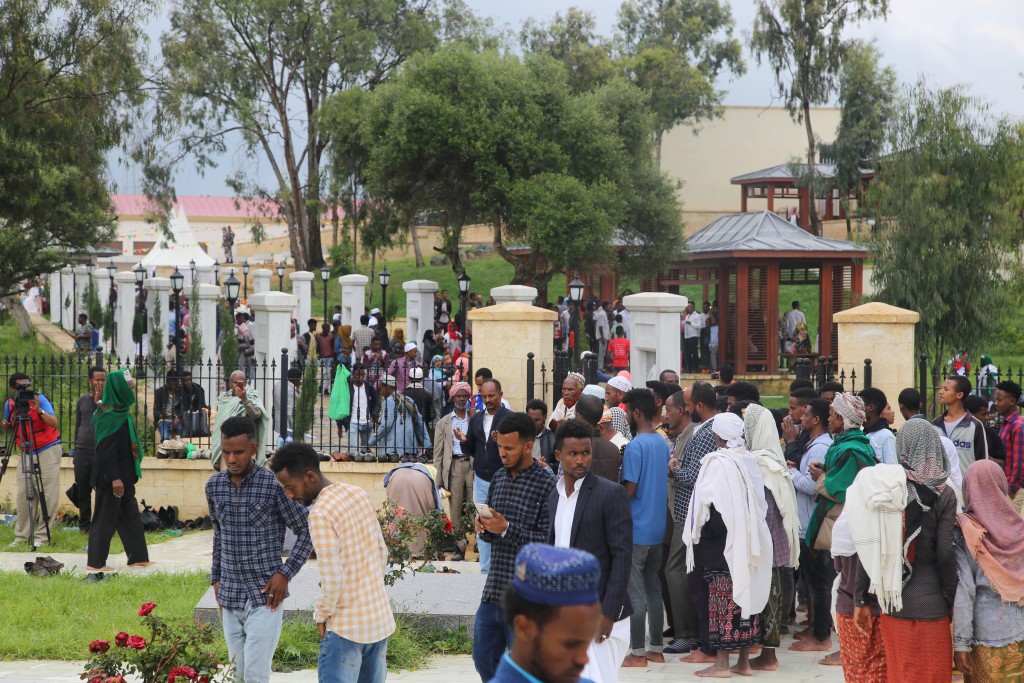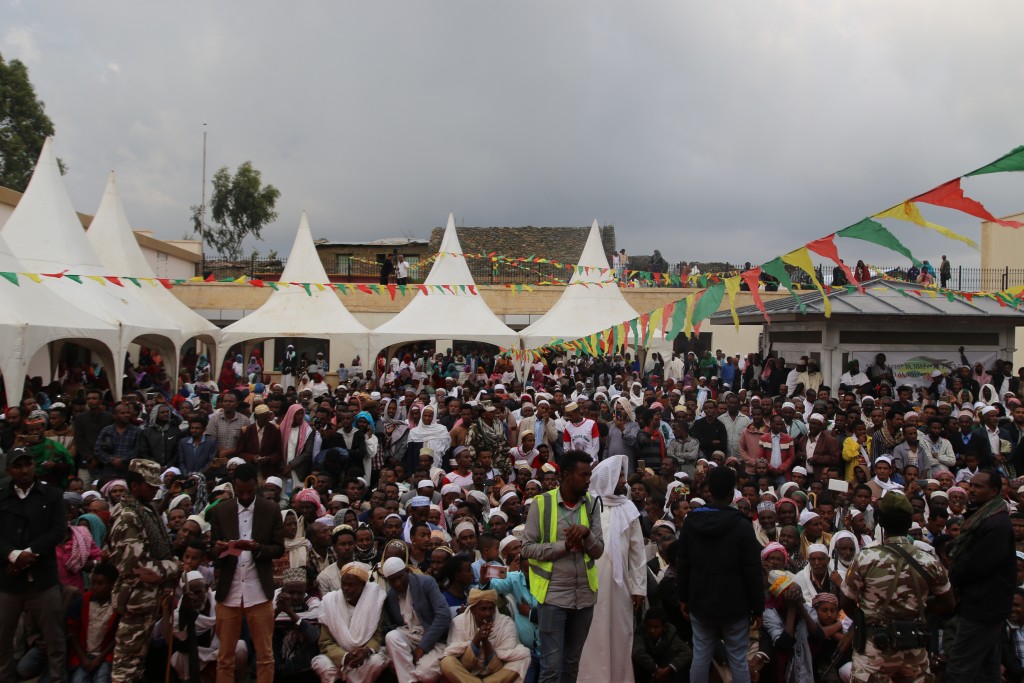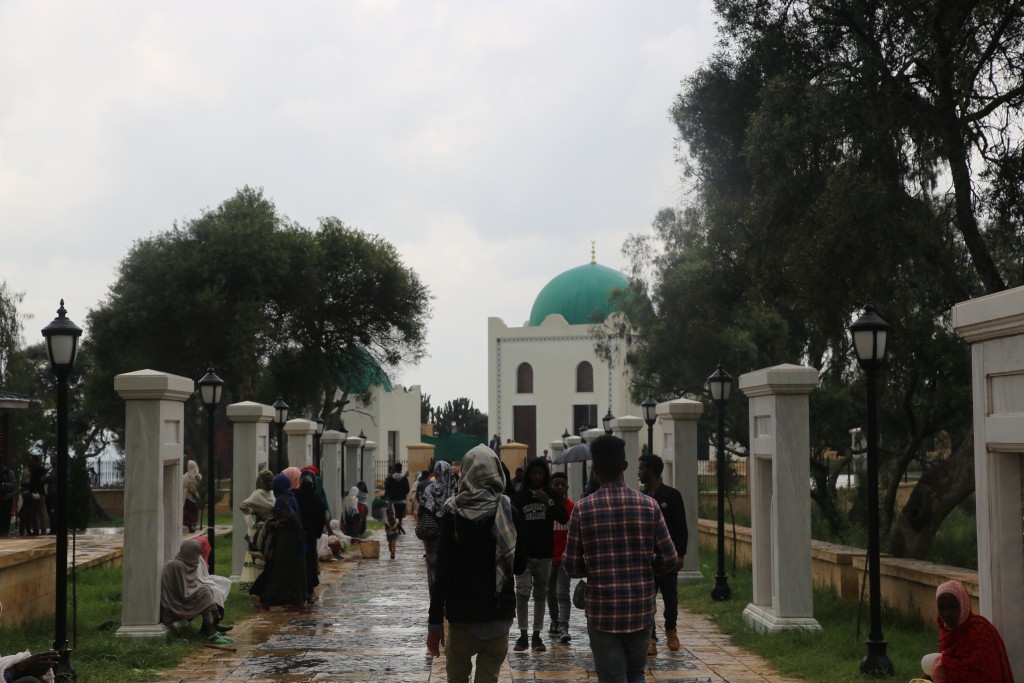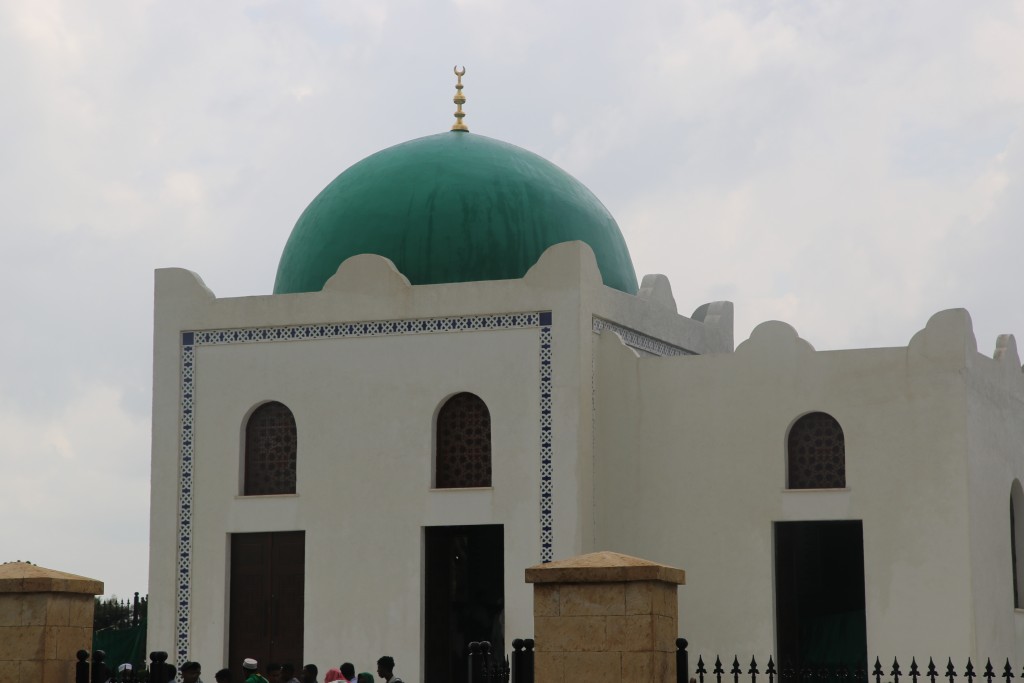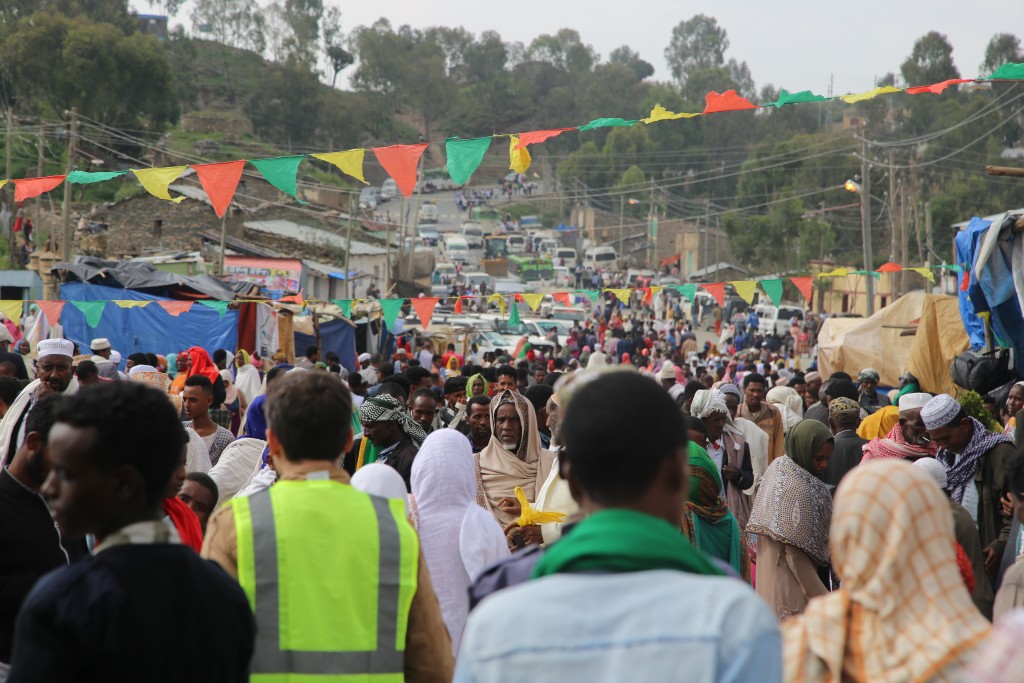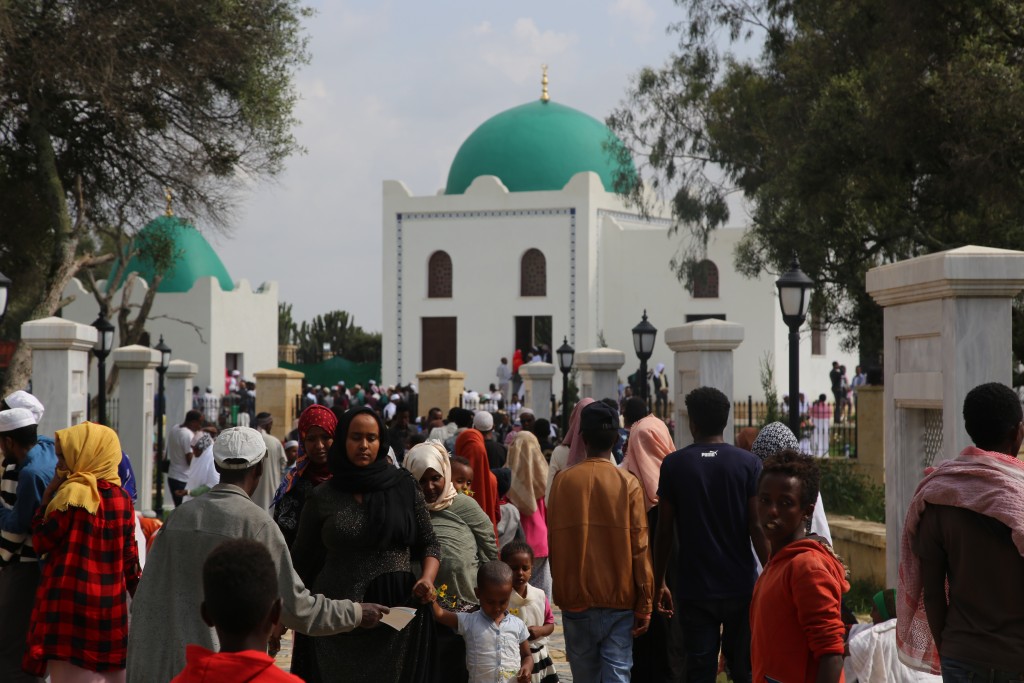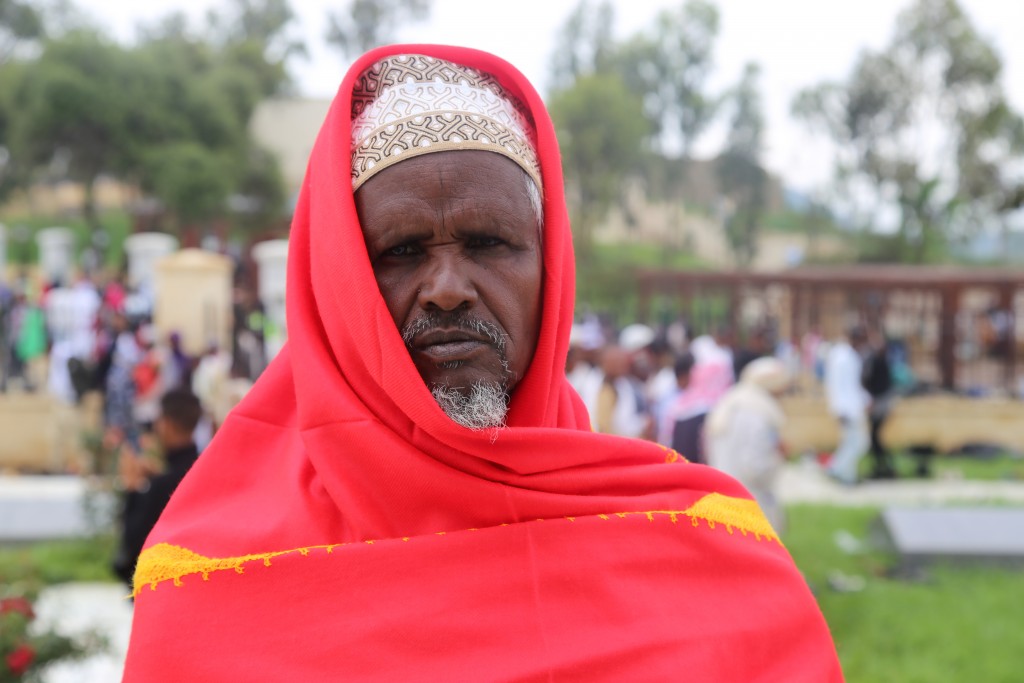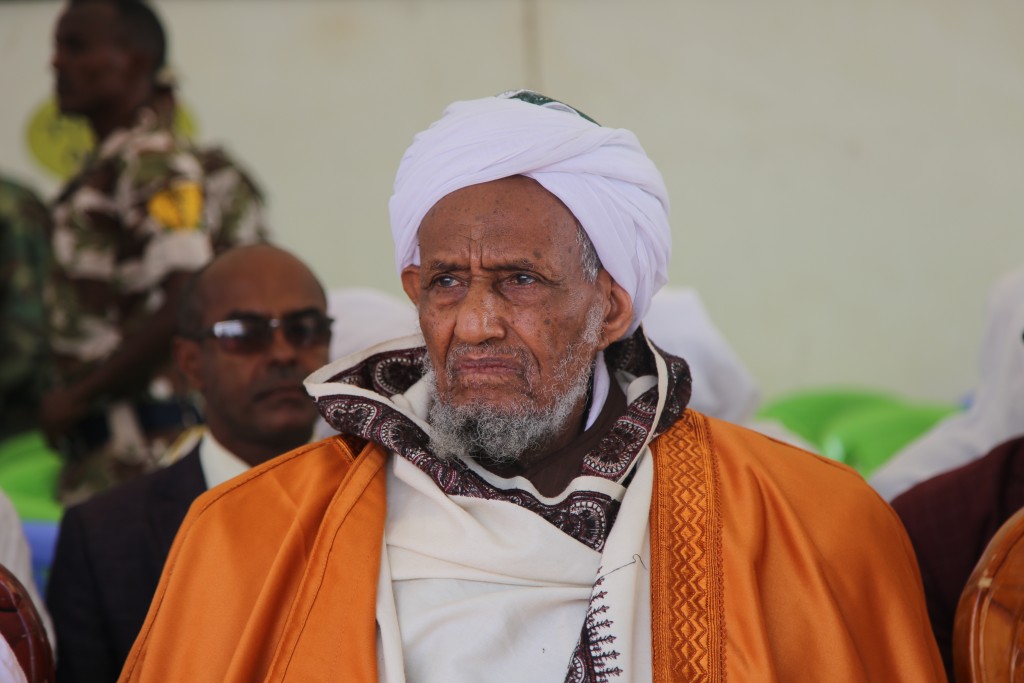News
19 September 2019"Allah Bestowed Turkey the Opportunity to Restore the Tomb of King Najashi"
Day of Ashura activities were held at the Tomb of King Najashi, which was restored and reintroduced to the Islamic world by Turkish Cooperation and Coordination Agency (TİKA), with the participation of thousands of people.
Last night at the compound containing the tombs of King Najashi and 15 companions located 60 km away from the city of Mekele in the north of the country, Day of Ashura activities were held with the participation of thousands of people. The events held at the compound, which TİKA reintroduced to cultural life and which quickly became a prominent touristic center, were attended by President of the Tigray Region Debretsion Gebremichael, Ethiopian Islamic Affairs Supreme Council President Mufti Haji Omar Idris, and TİKA's Addis Ababa Coordinator Mehmet Ali Yetiş, along with Muslims from Sudan, Eritrea, and Djibouti. The program, during which nasheeds and collective prayers were recited, drew great interest among all Muslims, regardless of age and gender.
– "We always wanted to renovate the Tomb of King Najashi"
Idris, the head of Ethiopia's top religious authority, praised the compound which was renewed and improved by TİKA during an interview with an AA correspondent before the event. Idris said, "Allah bestows the servants who fear him opportunities to do great things. The people of Ethiopia always wanted to renovate the Tomb of King Najashi. However, Allah bestowed Turkey the opportunity to fulfill this great task." Idris, who mentioned the importance of the Day of Ashura, which coincides with the tenth day of Muharram, stressed the importance of unity and solidarity among all Muslims. Elected by Ethiopian Muslims this year, Idris expressed that conflicts between Muslims had been coming to an end in the last few years and that the new council was met with acceptance among Muslims.
– "One of the most important projects"
TİKA's Addis Ababa Coordinator Yetiş stated that TİKA had implemented projects in more than 150 countries and added, "These projects include efforts oriented towards places and individuals that hold cultural significance and have the potential to promote tourism in the country. In this regard, the Project for the Renovation of the Tomb of King Najashi and Its Surroundings is one of the most important projects we have completed in Ethiopia." Expressing that the tomb was flocked with the opening of the Eritrean border last year and hosted several visitors from around the world despite the closed road this year, Yetiş said, "The interest shown by both religious authorities and the Tigray State administration are important indicators of the success of the project."
– "Najashi needs to be understood by all"
Ibrahim Ahmed, Imam of the Najashi Mosque next to the tomb, remarked that the aim was to remind others of the importance of King Najashi for Muslims. Indicating that the Islamic world was "in conflict" and "falling apart", Ahmed explained that the administrative understanding and justice of King Najashi needed to be known and understood by all. Furthermore, Abdullah Abdussamed, who came from Djibouti to attend the events, thanked and made prayers for Turkey for renovating the compound and reintroducing it to Muslims all over the world. Touching upon the importance of Ethiopia in Islamic history, Abdussamed expressed that the country was one of the first to welcome Islam with open arms thanks to the companions.
– The Village of Najashi In the period before Hegira, the first Muslims forced to leave their homeland due to material and spiritual torture and persecution in Mecca migrated to Abyssinia with the permission of the Prophet. The companions, which set out in two groups on different dates, crossed the Red Sea and reached Africa, becoming the first Muslim community in Africa. Najashi Ashame accepted the Muslims in their land and soon after converted to Islam after listening to what the Muslims explained and being influenced by their lifestyles. After Najashi Ashame passed away on the ninth year of Hegira, his body was buried in this village were the Muslims settled and the area started to be called the Village of Najashi. The word "najashi", which is the Arabic version of the word "negasi", which means "ruler" in Amharic and is spelled "negus" in Western languages, was a title used for Abyssinian kings. The Abyssinian King, whose name was actually Ashame, eventually began to be called King Najashi, his nickname.
Next News
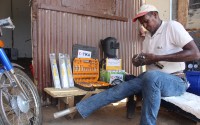
TİKA Supports Disabled Persons in Djibouti
Turkish Cooperation and Coordination Agency (TİKA) provided 200 wheelchairs to 200 individuals with varying degrees of disability who were determined in cooperation with Djibouti's National Disability Agency, Djibouti's Ministry of Social Affairs, and Djibouti’s Ministry...
